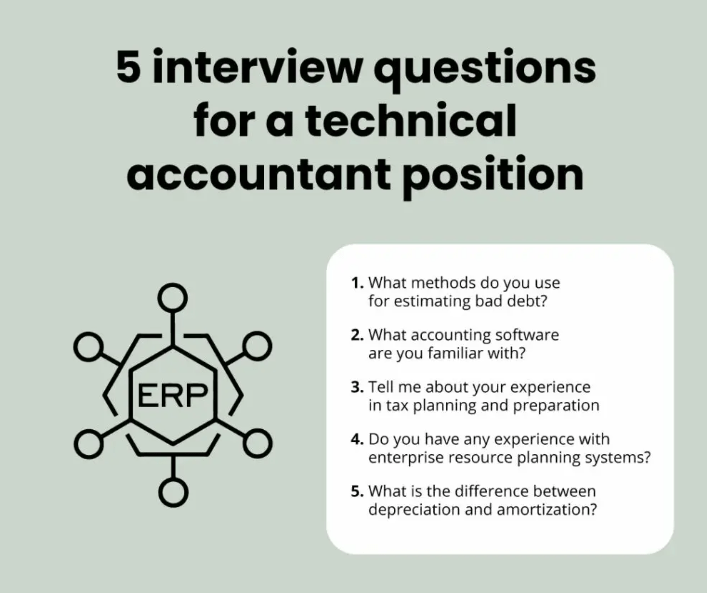Accounting is really important to ensure that the business complies with its legal requirements and has a practical view of its financial health. This means that if a person has good analytical and technical skills, then working as a technical accountant allows them to develop more advanced skills than ordinary accounting.
Technical knowledge about accountancy and how it works can be useful in case one wishes to have a career in the field of accountancy. In this article, we explain what technical accounting is, outline how the technical accounting principles work, look at its importance, and list the advantages of this type of accountancy.
What is Technical Accounting?
Technical accounting is a technical field of accountancy that uses various knowledge, skills, and techniques to perform basic and standard accountancy responsibilities.
It also involves applying technical, advanced knowledge and skills to complete technical, high-level processes that allow businesses to make crucial decisions and gain an in-depth understanding of their finances.
Advanced technical accountancy skills are used in the normal provision of standard accountancy services when conducting an investigation, checking the work of other accountants and financial professionals, and analyzing financial data. The vast majority of technical accountants undertake the core activities of the traditional accountant or may work with another professional to carry out the other elements of their role.
Technical Accounting Principles Work
Technical accountancy operates as follows:
-
Compliance with accounting regulations and standards
An integral part of technical accountancy is that a business is supposed to adhere to certain rules. These rules may include aspects such as how a business should collect, store, and process financial information. A technical accountant applies sophisticated knowledge of regulation compliance and accounting standards to serve a business in this regard and also learns the latest industry regulations.
-
Analyzing and reporting financial data
Financial accountancy primarily relies on financial data to carry out detailed analyses and produce intricate reports that the company utilizes to make sensitive financial decisions. For example, a financial accountant would create specific financial reports by using complex software to assist in operational decisions. Such a highly technical activity requires further training and knowledge of financial formulas and analysis that produce an intended outcome.
-
Use of financial papers to report on the financial situation of a firm.
Financial health is one of the integral indicators of business success. It is used to determine whether certain measures are required to develop a business’s finances. Technical accountancy involves the study and gathering of a business’s financial documents to get a clear view of its financial health, which the finance department and senior management team can then use.
These reports are crucial in making key company business decisions, such as whether the company should invest in a costly transaction during the current financial quarter or wait until the next one.
-
Internal audit
Technical accountancy also encompasses internal audits of a company to determine whether the business’s financial books are current and in conformity with the financial regulations. For instance, technical accountants might scrutinize the company’s books of account from time to time to ensure that the company’s statement of account is free from errors.
Hence, the company will adequately be prepared for the reporting year-end and is capable of being audited externally without anxiety. In this regard, technical accountants help prevent potential compliance issues for their employers.
Technical Accountancy Benefits
The main benefits of technical accountancy are:
-
Professional knowledge from an in-house expert
Technical accountants possess expertise in various aspects of finance. They thus can provide business enterprises with professional advice that enables them to follow the core principles of finance-related laws and file taxes, ensuring that new accounting systems are implemented. Companies that utilize technical accountants typically reduce their costs since they will be able to accomplish more work in-house and rely less on seeking external help to complete some core accounting work.
-
Full compliance with all new and upcoming regulations
Businesses need to comply with all regulatory standards applicable to their industry and country. To assist, they can hire a technical accountant to study and update their internal policies and procedures so that they fall within these guidelines. They can also utilize the services of a technical accountant to aid them in predicting changes in regulations even before they happen, and this is how they manage to relieve pressure on finance departments as they strive to ensure that their employer complies with these requirements as fast as possible.
-
More financial insight
Reports, techniques, and insights that a technical accountant can offer a business prove helpful because they allow a business to understand its overall financial position in detail. Such an analysis mostly helps sustain the business’s financial health as a technical accountant analyzes all forms of financial information available through the application of techniques at very high reporting levels.
Importance of Technical Accounting Principles
Anyone running a business is going to have to understand the basics of accounting, and they are likely much more involved than you thought they were before there were so many budgets to deal with. The most important thing to understand is that there are technical accounting principles that all people and companies must adhere to when they report their financial data to the state, federal body, or any other overseeing body.
The rules allow those bodies to easily understand what is happening with the money while they examine your financial data. The most widely used set of accounting principles is the International Financial Reporting Standards, and any accounting firm is going to have a firm grasp of what their rules mean and the best ways that your company can follow them.
Unless you know these generally accepted principles on your own, it is best to hire a firm that can take care of them for you. Otherwise, you run the risk of falling short of their standards and getting your company’s finances into immediate trouble.
Reason for Technical Accounting
Companies are expected to follow these standards mainly to ensure their financial statements are consistent, complete, and comparable to all other financial statements that an overseeing body has to examine. In essence, this tells them what they need to know and makes it easy for them to find the information they are looking for, and then they look into your finances.
The more closely you adhere to them, the less likely they will be to require additional information while they examine your company.
It also makes it easy for investors to look at your company’s finances and know if you are a good fit for what they hope to accomplish. That is why it is so important to hire a firm with the technical accounting skills to take care of your accounting principles.
Conclusion
Making sure your company adheres to the proper technical accounting principles is not something that you can do on your own. It does not matter how long you have been handling the company’s accountancy. A professional is going to know exactly what to do and how to do it quickly.
That is why you need to hire a firm that will check your situation and ensure your compliance with the standards that will serve you best. Find one today and get your finances where they are supposed to be!

